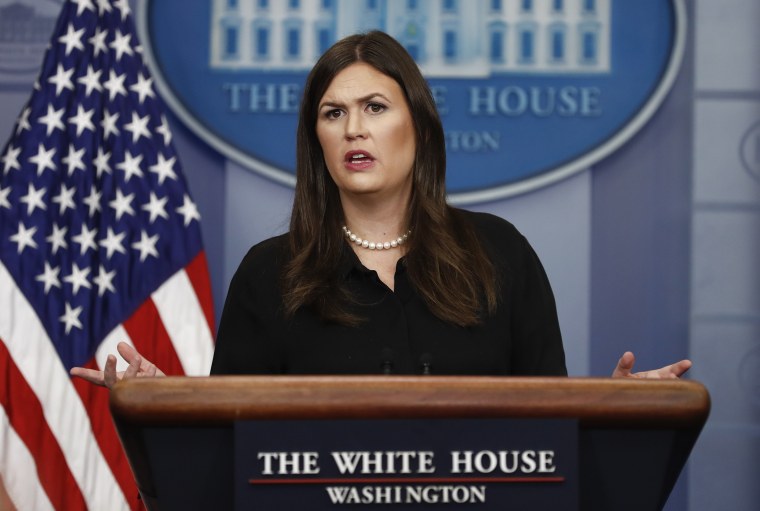For many years, Congress has had something called the "Gang of Eight," which receives highly sensitive intelligence briefings. As the name implies, the "gang" is a pretty small club, featuring the bipartisan leadership of the House, the bipartisan leadership of the Senate, the top two members of the House Intelligence Committee, and the top two members of the Senate Intelligence Committee.
These eight lawmakers have a unique responsibility to learn about some of the nation's most important intelligence secrets, and because the gang is split evenly -- four Republicans and four Democrats -- everyone is assured that both parties have equal access to the same information.
With this in mind, when Donald Trump's White House organized a new briefing for Congress on issues related to the Russia investigation, it stood to reason that the "Gang of Eight" would receive the highly classified information related to intelligence sources.
Those assumptions, we now know, were mistaken. Politico reported:
The White House has invited two senior House Republicans -- and no Democrats -- to a Thursday briefing to facilitate access for lawmakers to information about an FBI informant involved in the investigation of Russian contacts with President Donald Trump's campaign.The briefing, coordinated by White House chief of staff John Kelly, was agreed to Monday when Trump met with FBI Director Christopher Wray and Deputy Attorney General Rod Rosenstein to discuss Congress' demands for these classified documents.
At a press briefing yesterday, a reporter asked White House Press Secretary Sarah Huckabee Sanders why the behind-closed-doors discussion will be limited to the Republican lawmakers and Justice Department officials. She replied that Democrats "haven't been the ones requesting this information."
Sanders added, "I would refer you back to them on why they would consider themselves randomly invited to see something they've never asked to [see]."
In reality, the briefing itself is difficult to defend -- there's no precedent for sharing this kind of sensitive information about an ongoing investigation with allies of someone being investigated -- but turning this into a partisan affair makes matters far worse.
As Sam Stein put it, the Trump White House "appears to be, quite literally, politicizing intelligence."
Sanders insisted yesterday that no White House officials will be on hand for the briefing, though as a practical matter, giving information to House Intelligence Committee Chairman Devin Nunes (R-Calif.) is no different than giving information to Trump himself.
As for what's likely to come next, I tend to stay away from predictions, but here's what I expect to happen: after Nunes and House Oversight Committee Chairman Trey Gowdy (R-S.C.) receive the briefing, they'll express deep public "concern," and tell the media that the information raised new "questions" for them about whether Trump's ridiculous conspiracy theories may have merit after all.
The president will then claim vindication, the right will accept as fact that the Justice Department "spied" on the Trump campaign, and the absurd theatrics will continue through the midterms.
